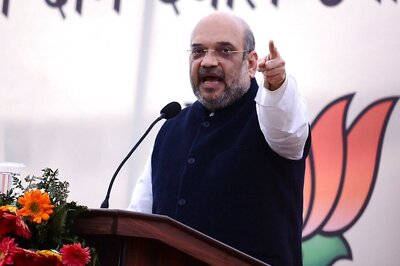
views
New Delhi: Cervical cancer can be fully prevented if there is the required awareness. The tragedy, however, is that because of lack of knowledge and an it-cannot-happen-to-me attitude, it is the most common kind of cancer in India today. "It's tragic that cervical cancer mostly hits the young population - young women, women with growing children - whose lives seem shattered after they come to know of it. But the most important thing to understand is that it is completely preventable and, therefore, all you need is awareness to protect yourself from it," Ranjana Sharma, senior consultant, obstetrician and gynaecology, at Delhi's Apollo Hospital, told IANS.
Cervical cancer occurs because of a viral infection, caused by the human pappiloma virus (HPV). According to A K Anand, director, Radiation Oncology, at Delhi's Max Hospital, 20-25 women of every 100,000 suffer from cervical cancer in India. "The incidence of cervical cancer is higher in rural areas than in metros. In metros, breast cancer is very common. Herpes is a cause for cervical cancer. Then again, bad local hygiene, too many children, not enough spacing between children, low nutrition levels and early marriage all contribute to the risk factors for this kind of cancer," Anand told IANS.
Sharma added that because the awareness level in metros is considered to be higher than in smaller towns and villages, and people there have better access to resources, the number in metros is seen to be less. "However, some women - no matter where they are - are more vulnerable than others. The high risk group includes girls who have had premature sex as teenagers, those who have had multiple pregnancies or multiple sex partners and don't use contraceptives," she said.
The symptoms to watch out for are post-coital bleeding; continuous, smelly vaginal discharge; bleeding between the menstrual cycle and irregular periods. In the more advanced stages, there could be back pain, bone pain or fractures, fatigue, loss of appetite, a single swollen leg and pelvic pain. Doctors, however, say that it's better to detect before the symptoms appear because in many cases, the symptoms don't appear in the early stages. If detected in an early stage, the chances of managing it are greater.
"A Pap smear test, even if it's done once a lifetime, can save you from cervical cancer. If you are in the reproductive age group, regular check-ups with your gynaecologist, even once a year, is a must," Anand said. Menopausal women are also not completely safe from cervical cancer, as seen in certain cases; hence it is always advisable to go for a check-up. Vaccination against HPV at an early age is the best way to prevent the disease, doctors add. Not all types of HPV are carcinogenic, and HPV types 16 and 18 contribute to 70 percent of the cervical cancer cases.
"There are two vaccines available and two more viruses common for warts. It's important that a girl should ideally be vaccinated young, at the age of 12 or so, before she has any sexual contact," Sharma said. "Having said that, all women are advised to go for this vaccine as it is not necessary that just because you are sexually active you would have contracted this virus. It covers the age group of 10-26, up to 46," she added.




















Comments
0 comment